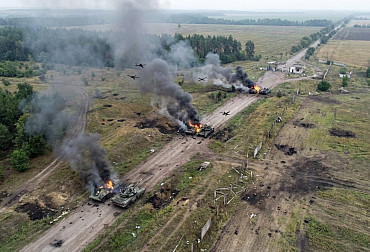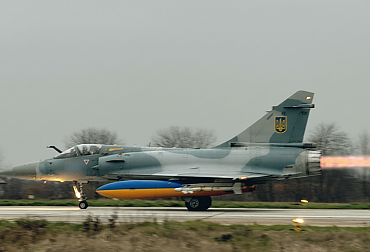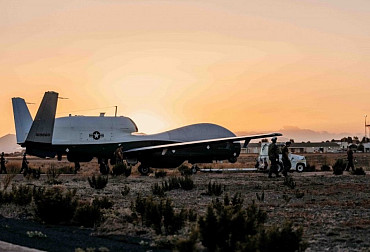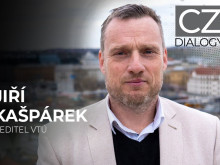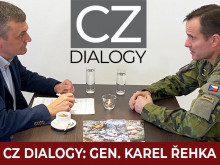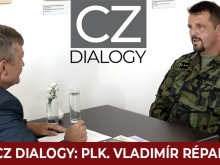Col. Vojtěch Koziol: We must stay one step ahead
A unit that is not well known, yet is one of the best the Czech Army has to offer. We are talking about the 601st Special Forces Group (601st SFG) based in Prostějov, which is the only special unit of its kind within the Czech Army. The exact numbers, tasks, and specific capabilities of this special group often remain classified, but its members play a key role in protecting the security interests of the Czech Republic and the Alliance. We bring you an exclusive interview with the new commander of the 601st SFG, Colonel Vojtěch Koziol, who reveals how elite soldiers are preparing for the future battlefield, what technologies they work with, and what it means to him personally to be the commander of the 601st Special Forces Group.
Video: Interview with Colonel Vojtěch Koziol, commander of the 601st SFG / CZ DEFENCE
Colonel, what is the current focus of our only special forces unit in the Czech Army?
The main activity of the special forces is to prepare for special operations assigned by the government or army command, or requested by our allies. We also prepare for international and domestic exercises. We support units with which we are in contact both abroad and in the Czech Republic.
I would also like to ask about the tasks you mentioned. How much can you talk about them?
We carry out a number of tasks. Of course, some are open, some are closed to the public in order to protect the identity of the operators who carry them out and then the course of the operation so that it is not revealed in any way. So we can talk about certain limits, but we do not present everything as special forces to the public.
Let me try asking differently. Have the tactics of 601st Group changed recently?
Tactics are constantly evolving, as you can see in Ukraine, where things that we are seeing now already happened three years ago. This is now our main source of inspiration, so to speak, because it is a European battlefield and it is no longer far away, it is close to us. We are constantly trying to prepare for new tactics, which are not entirely new, but are being renewed and developed.

Do current conflicts bring any peculiarities that you may not have known about or directly anticipated?
I would say that it is unmanned aerial vehicles. That is actually what we are trying to analyze and use the most, and then, of course, 3D printing. That is also quite new to us because it allows for great flexibility in what can be produced.
I can't really imagine how it works in practice on the battlefield.
On the battlefield, it means that you lose any dependence on a logistics chain that is deep in the field and makes it difficult to transport the components you need to complete the task. You are able to create them yourself, improvised of course. You need electricity, you need facilities.
And what are the limits of 3D printing? You can make a weapon, for example. I'd like to understand that somehow.
I understand where you're going with this, but we won't go into complete detail. You can create a lot of things, such as components for a UAV that has crashed and been damaged. Or you can create a wing or some kind of ammunition rack that can then be used in combat. Of course, there are different materials that can be used in 3D printing, and that then naturally leads to what can be made from them and how they can be used.
The 601st Group changed its status from being subordinate to Military Intelligence to being under the General Staff. What did this transition mean for the unit?
I experienced both worlds, when I was still under Military Intelligence, and then later under the Army. Each arrangement had its pros and cons. Direct subordination to the General Staff and the establishment of the Special Forces Directorate gave us a lot, you could say, direct access to strategic decision-making or processes that we did not have access to before. Cooperation with other types of forces, which had not been particularly effective before, was unified and simplified. On the other hand, under the then Military Intelligence, our activities were subject to the Military Intelligence Act, which means that secrecy was, to a certain extent, better than it is now.

How much does the fact that you are now more visible affect you?
Well, we struggle with it, of course, but that's how it is with everything today. Nowadays, a lot of things are done online, and in fact, we are conducting this interview online.
How does the training of a member of the 601st Special Forces Group differ from that of, say, a regular soldier in the Czech Army?
We try to make our training more comprehensive so that operators are, so to speak, multidisciplinary. Operators are often under great time pressure and have to make decisions based on very little information in a given situation. They must then, of course, take responsibility for their decisions, so the training is, so to speak, a degree more difficult than in the conventional army.
How do you select candidates for your special group, and what qualities must such a soldier have?
Every organization struggles with this, because according to the demographic curve, there aren't enough people. In any case, in the special forces, we have always adhered to the rule that quality is more important than quantity, and we don't have thousands of people lining up at our gate. We accept either soldiers or other people who serve in the armed forces or corps. Applicants must be classified as Category A for health, be capable of serving as paratroopers, and have a clean criminal record. A high school diploma is required for combat positions, and a vocational certificate is sufficient for logistics positions. And then, of course, the applicant must meet the requirements for obtaining a security clearance at the level required by the operator. Historically, it has sometimes been perceived that applicants must have at least two years of previous service, but that is no longer a rule. If an applicant meets the requirements I mentioned, they can join us.
I thought you would always be full, that basically everyone wants to join the special forces.
Our name is very strong, as are our results, so of course it is prestigious and an honor to be with us, but as I said, our benchmark is quality, and not many people pass.

What made you decide to join the 601st Special Forces Group?
I've been in the army my whole life since I was fourteen. After high school and college, I couldn't find a job in my field of study. So I just wanted to be among the best, which was my only goal. And now that I'm there, my goal is to be a soldier first and foremost.
By the way, is expertise an advantage for a soldier who joins the special forces?
Every expertise gives you a different perspective, and we are never all the same. Everyone can then innovatively draw on their history, which they have experienced and actively used in their previous work or school, to bring their own active solutions or perspectives on resolving a crisis situation. And that's a good thing.
So, for example, someone who has studied a technical subject and wants to join the 601st SFG has a slight advantage over someone who only has the physical prerequisites, so to speak?
We all come from different fields, we all study something, so we all start from the same starting line. It's more about wanting to continue learning and developing and being motivated to sometimes do things that hurt.
So what is the key expertise or skill that every soldier should have? Should they have very good physical condition as well as the ability to master a range of technologies?
Technology is part of the present, and with the ability to master it, everything is of course easier. On the other hand, our children already know how to use a tablet at the age of three, or maybe even earlier. Therefore, mastering technology is not an extra asset for us.
In my opinion, one of the key qualities of your unit's operators is mental resilience. How do you train it?
Of course, no one can see what's going on inside your head, and you're always surrounded by various stimuli that influence you. In any case, we try to promote self-confidence and then ensure that the operator has people around them who they can rely on 100%. This will then help you overcome any obstacle. When you are able to talk about a problem with people you trust, it is easier to overcome. And then, of course, we use the professional help of psychologists who train us in building mental resilience.
At the 601st SFG, you probably have some rituals that promote team spirit and the fact that soldiers often know more about each other than they know about themselves.
In general, we in the special forces devote a lot of time to each other even when we are not at work. For example, when I want to have a beer with friends or have fun outside of work, such gatherings among soldiers are very popular. It helps us relax a little, but that's the same everywhere. Life is not a sprint. I go through “peak” periods at work and then I just need to rest. And we create conditions for that, such as the special forces ball or other gatherings. There is also a tradition of Special Forces Commemorative Ribbons, where people are rewarded for their service in the special forces. We cooperate with the Prostějov Paratrooper Veterans Club, where we support history and the present so that old and young can meet. Of course, we understand what people want and what will help in a given situation.
How much does maintaining a spirit of unity between the younger and older generations help?
To put it simply, we haven't been here for just one day. What has been built so far is the work of former members of the 601st Special Forces Group. Some may find it annoying that we meet with people we no longer see in the context of our activities, but when I had the opportunity to attend military school in America, we also had lectures from people who were much older than us, veterans from Vietnam or other conflicts and wars, and I realized that although we have different conditions and experiences today, we are still learning from each other. It is a connected vessel that must not be cut off, because history is important.
Are our special forces any different from those abroad? I am thinking, for example, of American special forces, which often have more combat experience.
We are all different. The US Army has different resources than we do, a different purpose than we do. So there are differences.
I must also ask you about the modernization of the weapons and technology at your disposal. How satisfied are you with the current pace of modernization of your group?
The pace is, of course, influenced by the acquisition process, which is often not as fast as we would like, but I see it positively because the army now has the attention it didn't have three years ago. And because of that, it is innovating and purchasing the equipment that needs to be replaced. However, in the context of special forces, this is not a fundamental change because we maintain high standards, including in terms of equipment.

Does the overall modernization of the Czech Army have any impact on the capabilities of the 601st SFG?
It's great because, for example, the helicopter fleet has new helicopters with completely new capabilities that the previous helicopters did not have. The key is connectivity and combat support on the ground. It's just great. The T-72 tanks, on the other hand, did not have the communication systems that the Leopards now have. So, I repeat, it's great.
We have already mentioned the transfer of your unit from Military Intelligence to the Army. Has this changed the procurement of weapons or equipment in any way?
The standard acquisition process was also in place under Military Intelligence. In this spirit, we follow the army's setup, i.e., the standard acquisition process. Yes, it has its disadvantages, but the advantage is that we write the specifications for the materials ourselves because we know exactly what we need. No one fundamentally interferes with this, although we naturally try to use army contracts that run on standard materials to save time and money. So we try to combine army contracts, but when it comes to specific materials for special forces, we have the option of purchasing on an “exception” basis, and as the director of special forces, we can make purchases.
How does the unit prepare for hybrid or cyber threats, which are very sophisticated today?
These threats are, of course, complicated because they require a lot of experts, which we often do not have. We work with a cyber forces unit that provides us with expertise. We then try to incorporate this information into our training scenarios so that we are prepared.
Hybrid and cyber threats are now capable of targeting individual soldiers. Do you work with this in any way, do you train in resilience? For example, when someone receives a text message on their cell phone, or when an operator is somehow irritated in their private life?
Of course, we are also aware of this cognitive sphere and can decipher when a person is under the influence of some external actor who has entered their subconscious. Naturally, those around them perceive and observe how that person reacts. In this sense, there is no cure for cognitive influence, so we must be very aware of what is happening around us.

Is there any specific skill or activity that you would welcome or improve in the 601st Special Forces Group?
I will follow up on what I said earlier. These are unmanned aerial vehicles and 3D printing.
The 601st Group has been mentioned quite often in political circles lately, and the Defense Committee has mentioned your unit more than once and discussed various topics. How does this complicate your life?
The mentions and comments by politicians do not affect us in any way. I understand that we may perceive some negative influences in the media sphere, but that does not affect us in any way, because we are an instrument of the Czech government, just like the entire Czech Army, and we do what is necessary in its interest and in the interest of the country's security strategy.
However, when you read it, it's probably not very pleasant, is it?
If someone wrote something bad about you, you would naturally take it badly. But we are morally mature enough not to let it get us down.
What has been your most challenging mission so far?
This always depends on your perspective and on what you have experienced. But when I look back in a global context, it was definitely Afghanistan. Although, of course, it was not a sophisticated enemy, as we are now seeing in Ukraine. It was our first time in that situation and environment, and we were setting the standard for the first time. No one gave us a handbook at the time saying, “You're going to Afghanistan, and this is how you should prepare for your tasks.” The other missions we are currently carrying out are better prepared and easier.
How intensive is the cooperation with foreign units? Do you train together?
Fifty percent of all exercises during the year are with foreign allies. Each country perceives the threat differently and has a different way of solving problems. This can be an inspiration for us. We are in NATO, so if we train together in advance, then the actual deployment, if it ever happens, will be easier, we will be interoperable, and we will be able to cooperate much more easily.
When you compare your equipment with that of special forces from other alliance countries, is it comparable?
It is comparable, you could say. This year, we passed the SOFEVAL (Special Operations Forces Evaluation) certification, which sets the standard for all special forces in NATO, without any major errors.
The 601st SFG has a Special Forces Support Center at its disposal. How is this divided between you?
The division is simple. The “601” is the main combat force that carries out special operations. The Special Forces Support Center, as the name suggests, supports us. This synergy is important for us to maintain a high operational tempo and actually be able to perform more tasks than we were able to in the past. For example, they support us with heavy weapons, transportation from point A to point B, and information support. These are things that we have found over time we do not have the capacity to handle ourselves. That is why we created this center.
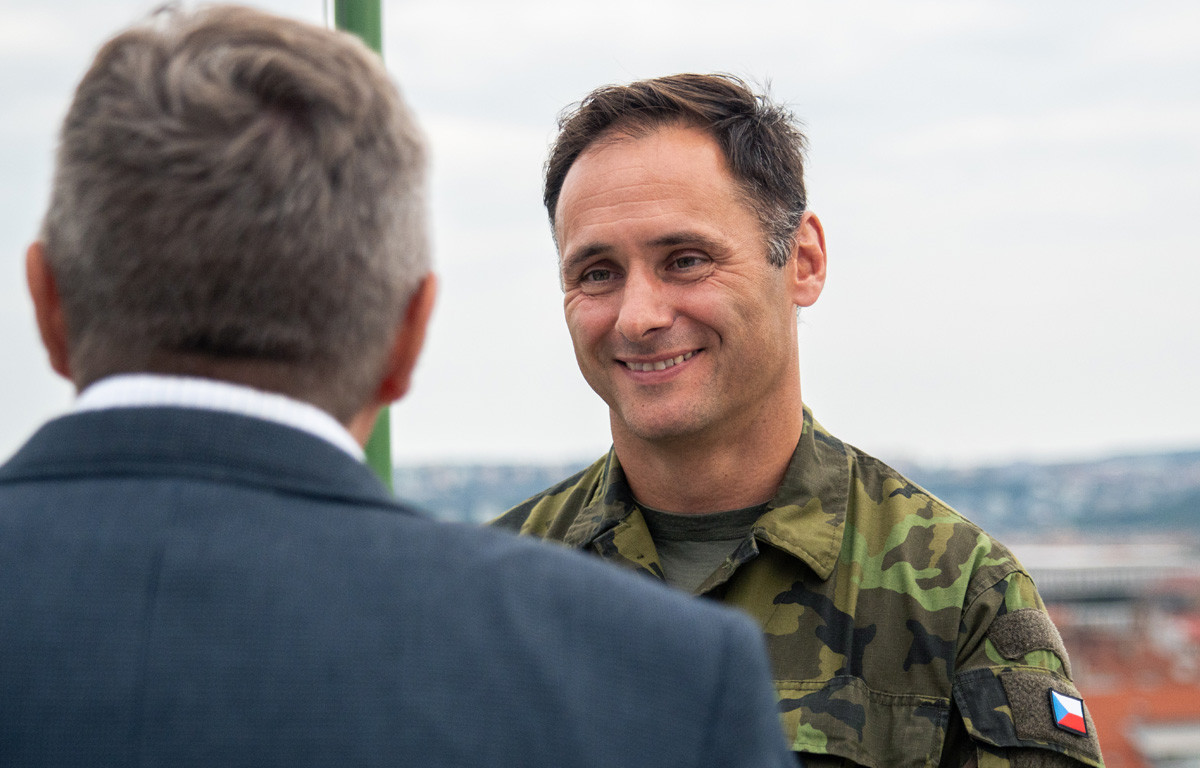
How do you think special forces should be presented to the public?
The public needs to know that the Czech Republic has excellent special forces that meet NATO standards. We are capable of supporting defense both from the Czech Republic’s perspective and from that of NATO’s collective defense. And we must always be one step ahead.
You are the new commander of the 601st Special Forces Group. What are your ambitions for the group?
Like previous commanders, I am naturally continuing the work of my predecessors. Every commander is a little different, each had their own perspective, each saw things a little differently. In any case, I want to continue integrating into NATO structures and create conditions for soldiers to stay with us as long as possible. For me, personnel are the foundation.











